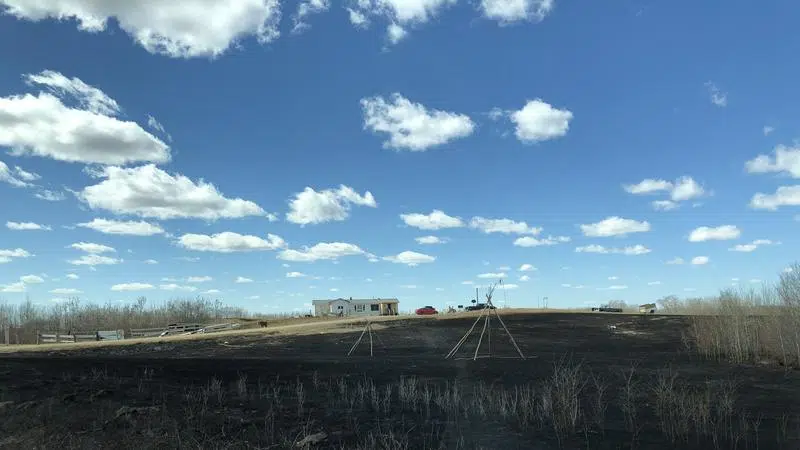
No homes but some sheds lost in Red Pheasant, Mosquito grass fire
Nearly 50 people were needed this weekend to help tame a quick moving grass fire on the Red Pheasant and Mosquito First Nations.
Smoke could be seen from North Battleford, and Highway 4, about 25 kilometres south of Battleford. Traffic was restricted to one lane for a period of time Saturday as wildfire teams doused the blaze.
Red Pheasant band councillor Shawn Wuttunee said the fire sparked up Friday. He initially thought it would be easily contained until the wind picked up and started to fan the flames, shooting the fire across the Mosquito First Nation and into Red Pheasant.


